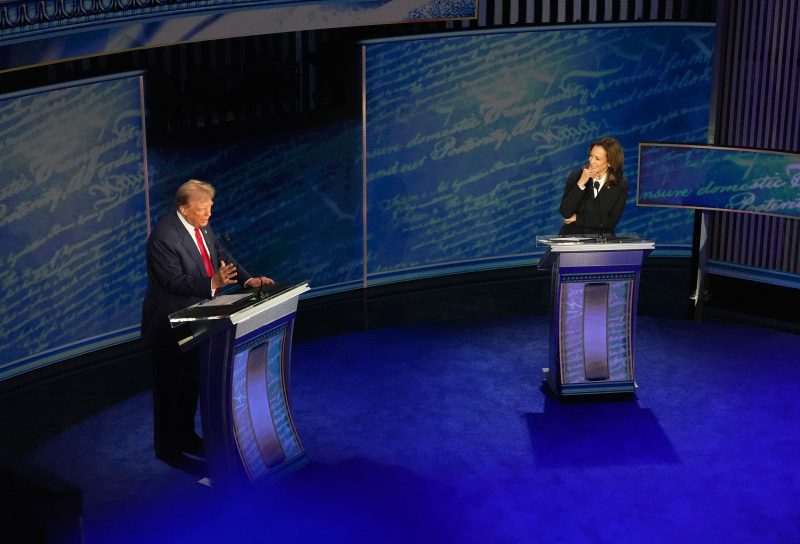In the recent presidential debate, the candidates answered key questions on foreign policy. The discussion delved into crucial topics such as national security, alliances, and America’s role on the global stage. The responses of Vice President Harris and former President Trump reflected their contrasting approaches to these issues, offering voters insights into their visions for the country’s diplomatic and military strategies.
Harris highlighted a focus on diplomacy and multilateralism in her responses, emphasizing the importance of rebuilding relationships with allies and engaging in international cooperation. She underscored the need for addressing global challenges through collaboration and strategic alliances, positioning herself as a proponent of a more inclusive and cooperative foreign policy approach.
In contrast, Trump’s responses underscored a more unilateral and America-centric perspective. He prioritized a stance of prioritizing national interests, advocating for a strong military and emphasizing his administration’s emphasis on protecting American interests on the world stage. His approach reflected a more transactional view of foreign relations, emphasizing the need for deals that benefit the United States economically and strategically.
One of the key differences between the candidates’ responses was their view on international institutions. Harris advocated for a recommitment to organizations such as the United Nations and NATO, arguing that such alliances are essential for addressing global challenges effectively. She highlighted the value of collective security and cooperation in advancing America’s interests and values on the global stage.
On the other hand, Trump expressed skepticism towards international organizations, criticizing their efficacy and emphasizing the need to prioritize American interests over multilateral agreements. He highlighted his administration’s efforts to renegotiate trade deals and military commitments, framing his approach as putting America first and prioritizing bilateral relationships based on mutual benefit.
The debate over foreign policy underscores the divergent approaches of the two candidates and offers voters a choice between differing visions for America’s role in the world. Harris’s emphasis on diplomacy and cooperation contrasts with Trump’s emphasis on national interests and bilateral deals, reflecting broader debates within American foreign policy on the merits of multilateralism versus unilateralism.
As voters consider these contrasting perspectives, they must weigh the implications for America’s standing in the world, its alliances with other nations, and its ability to address global challenges effectively. The foreign policy positions of the candidates offer a window into their broader visions for America’s role on the international stage, highlighting the stakes of the upcoming election in shaping the country’s global engagement and strategic priorities.


































